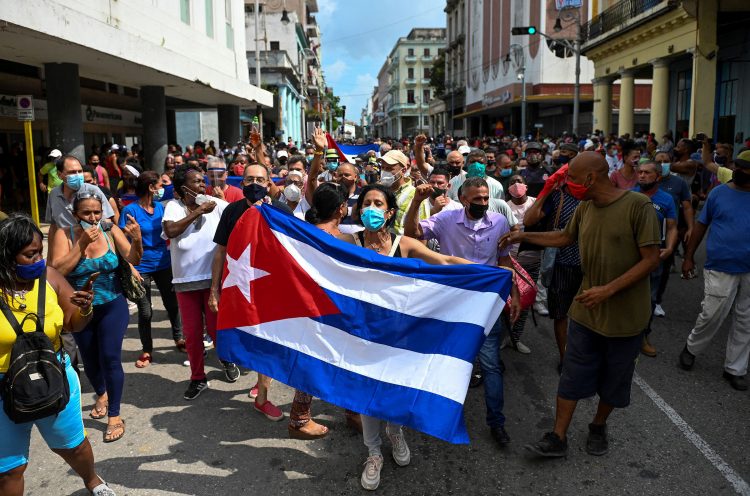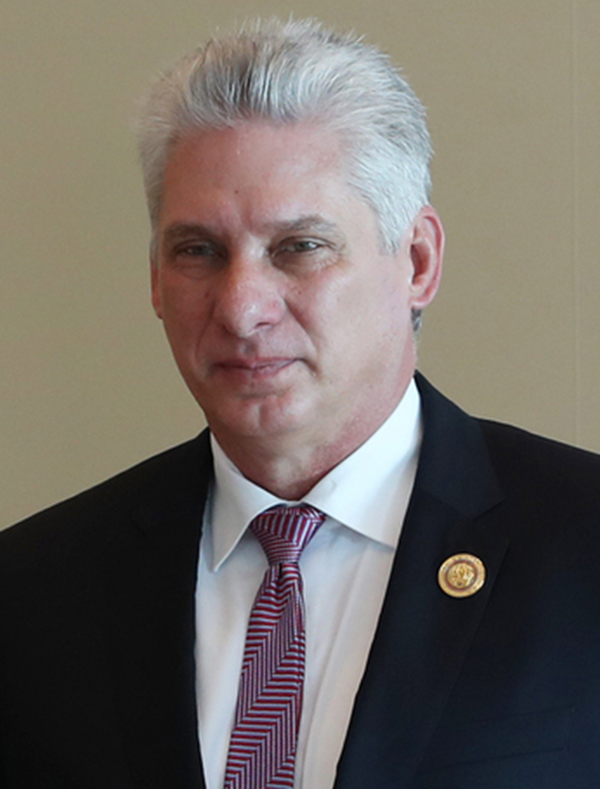
Whilst the boisterous street protests which always appeared to be under the control of the island’s security forces were a rarity in the history of a government led for over half a century by one or another Castro, Diaz-Canel, who has been attributing the protests to the United States and to social media, said in a televised statement that his administration’s own handling of the country’s various social problems had played a role in the protests.

Whether or not the fleeting concession by the first non-Castro to govern Cuba might have been a precursor to further concessions under the new president was unclear since it appeared not to be attended by any real depth. Nonetheless, analysts of Cuban political culture are bound to regard it as a not insignificant pronouncement in an environment where Cubans have been calling for state concessions in areas that have to do with the standard of living amongst ordinary people. Havana, under the Castros, first Fidel and afterwards, Raoul, has always held firm to the view that its communist ideology and its unrelenting criticism of the United States’ anti-Cuba policy had been, over the years, the primary threat to the survival of its socialist ideology.
Last week’s protests, which appeared to come as a surprise to the rest of the Caribbean, also saw Cubans voicing protests over high prices and power outages. It appears, too, that the protests were also attended by muted calls for a change in political administration. One report on the protests noted that they were the biggest seen on the island since a quarter of a century ago when the then Cuban leader Fidel Castro himself took to the streets in an effort to calm the crowds protesting serious food shortages.
Diaz-Canel is reported as saying that the Cuban government had “to gain experience from the disturbances.”
For the moment the new Cuban leader’s statement is likely to be subject to myriad interpretations both inside and outside Havana and particularly in the United States where successive administrations have been sending mixed signals insofar as mending fences with an age-old arch enemy is concerned.
What Washington has failed to do, over the years, is to break a kinship between Cuba and the English-speaking Caribbean which is underpinned largely by Havana’s protracted contribution to the strengthening of the public health sector in much of the rest of the region both through the deployment to Caribbean Community (CARICOM) countries like Guyana, Jamaica and Grenada and through the granting of scholarships to students from the region to study primarily medicine in Cuba.
Guyana and Cuba have signed agreements under which Havana has access to rice cultivated here.
Diaz-Canel’s concession that his administration could not be altogether absolved of blame for the protests reportedly added, however, that protestors acted “with hatred.” His speech also condemned what he said were acts of “vandalism, yelling for deaths… planning to raid public places, breaking, robbing, throwing stones.”
The Cuban president reportedly said that what he described as a “complex situation” was taken advantage of “by those who do not really want the Cuban revolution to develop or a civilized relationship with respect with the United States.”
While the Cuban government has not been known, historically, to make concessions to violent protests, the country’s Prime Minister Manuel Marrero reportedly announced some placatory measures including customs flexibility for Cuban citizens who go on foreign trips to bring home some consumer goods that are difficult to obtain in the country.
The Associated Press also reported Marrero as saying that work is being done to improve the stability of the national electricity system and that officials will seek to improve the supply of medicines, many of which are produced on the island but whose inputs must be imported. At the same time Economy Minister Alejandro Gil reportedly announced that directors of state-owned enterprises will be allowed to determine salary levels, which decision-making has reportedly been beyond the gift of the executives of state-run entities.






